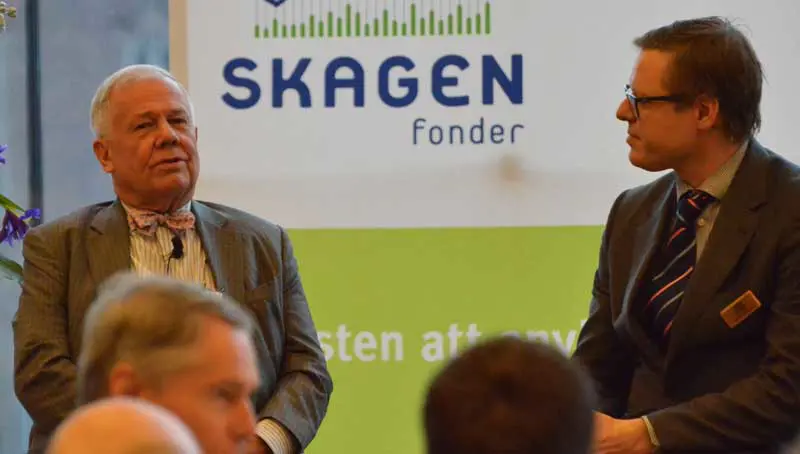Le contenu de cette page relève de la communication marketing
Jim Rogers' outlook on 2017
Jim Rogers is an American investor, financial commentator and author who co-founded the Quantum Fund with George Soros in 1973. In this interview, Roger gives his outlook on 2017 and tells us what lessons we can learn from the past.

It has been a bad year for the establishment in the Western world and an awful year for pollsters who predicted that Britain would stay in the EU and that Donald Trump would not win the US presidential election. It seems we are moving towards a more protectionist world for the first time since World War II. What are the investment conclusions of this?
The world has seen this before, we move in great cycles. One of the main lessons of history is that most people do not learn the lessons of history. Many who do know the lessons of history think they are smarter than history and can overpower the lessons of history.
Trade wars and currency wars have always led to bankruptcy and often to real war. If Trump and others mean what they say, we are all doomed.
A very stimulating monetary policy is something I know you have been concerned about for a long time. In 2016 major central banks continued with their money printing. Some analysts have declared the end of the 30-year bull market in government bonds as yields have picked up. What is your opinion about this?
The 35-year bull market in bonds is making a complicated top. At the moment everyone is bearish on bonds so there will be some rallies along the way.
Will inflation come back in the system?
It is here. Where do you shop? Or perhaps your butler does your shopping? Ask him.
Stock prices have risen in the US in anticipation of Donald Trump becoming a new tax-cutting Ronald Reagan. What do you think about the policy proposals so far from incoming president Donald Trump?
Cutting taxes, rebuilding infrastructure, bringing back the offshore US dollar are terrific. Trade wars with China, Mexico, etc, etc. are disasters. US stocks are expensive, but could go higher if he does the positive and delays the bad. The stock market and the US dollar could get overvalued and both could even become bubbles depending on what he does first.
When you spoke at our conference in 2014 you were quite bullish on Russian equities. This is something that has paid off well. What's your view on Russia now that oil prices have spiked after OPEC's decision in November to cut output and the rouble has strengthened markedly?
I bought more Russia recently including Russian government bonds in rouble.
Will oil prices continue to trend upwards?
Oil too is making a complicated bottom. We will look back down the road and see that energy made its bottom in 2015, 2016, 2017.
Where do you see the most and least value from an investor's point of view as we enter into 2017?
I see the most value in Russia and Agriculture. On the other hand, I recommend shorting the FANGS (Facebook, Amazon, Netflix, Google/Alphabet) in the US unless it is clear a bubble is coming.
Finally, a lot of people seem to be very nervous about China these days. Both from an economic and a geopolitical perspective. Having long been a bull on China, what's your view on China at present?
Remember the US was the most successful country in the 20th century, but as we rose, we had 15 Depressions, a horrible civil war, massacres in the streets, few human rights, etc. China will have many problems along the way just as does every individual, family, company, and country that rises.
China is now a huge trading country and many of its customers are having problems with more to come. When your customers have problems, you have problems so we will see more slowdowns in China in the future.
China also has debt now which it has had little of for decades for historical reasons.
You are going to see bankruptcies in the future among those companies with debts whose customers have problems. Beijing has stated they will let them fail – unlike the West and Japan which do not let people fail.
If there is a crash, which parts of China will do well?
Some parts of China will surprise on the downside, but others will keep growing even if the West sinks into the sea. For example, China is filthy and is spending huge amounts cleaning up.
You may have heard of One Belt – One Road, an initiative launched by president Xi Jinpin in 2013 to vastly develop infrastructure in the country. It is not often in history that geography changes, but the Chinese are doing this. Another gigantic project.
The same sorts of things are happening in healthcare, agriculture, tourism, et al. So many will boom no matter what. Some will collapse.
One of the keys to investing is to own companies that do well when everyone else is collapsing. Those soar during and/or after a crash.


